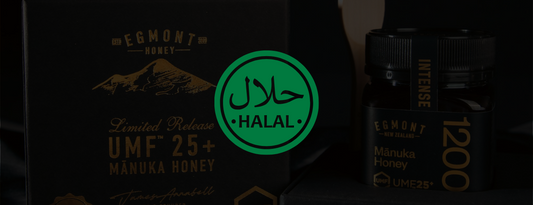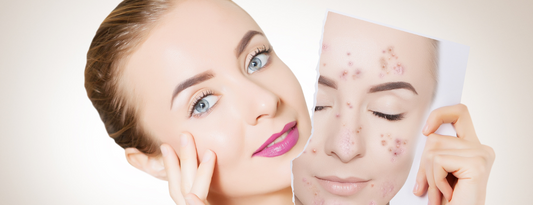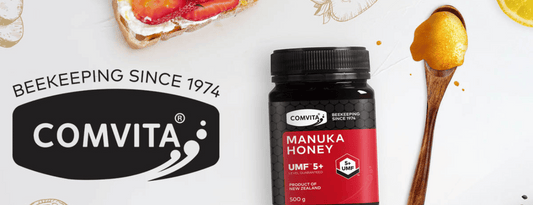Is Manuka Honey Raw? Understanding the Truth About Nature's Golden Treasure
When it comes to premium honey varieties, Manuka honey from New Zealand stands in a league of its own. A common question that often surfaces among health-conscious consumers is: "Is Manuka honey raw?" To answer this question comprehensively, we need to delve into the fascinating world of Manuka honey production, processing, and preservation.

Is Manuka Honey Raw? A Complete Guide
Understanding Raw Honey vs Processed Honey
Before we specifically address whether Manuka honey is raw, it's essential to understand what makes any honey "raw" in the first place. Raw honey is honey that hasn't been heated above hive temperature (around 35°C) or extensively filtered. It retains all its natural enzymes, beneficial compounds, and therapeutic properties.
Is Manuka Honey Raw? The Production Process
The question "Is Manuka honey raw?" depends largely on the producer and their processing methods. Traditional Manuka honey harvesting involves collecting honey from hives placed near flowering Manuka bushes (Leptospermum scoparium) in New Zealand. When properly harvested and processed, Manuka honey can indeed remain raw.
The Harvesting Process
Most reputable Manuka honey producers, including trusted suppliers like Manuka Hut, maintain strict standards to ensure their honey remains raw. The process typically involves:
- Careful extraction from the honeycomb
- Minimal filtering to remove wax and bee parts
- Cold processing techniques
- Immediate packaging to preserve freshness
Why Raw Manuka Honey Matters
When asking "Is Manuka honey raw?", it's crucial to understand why this matters. Raw Manuka honey contains several beneficial compounds that could be compromised by excessive heat or processing:
- Methylglyoxal (MGO)
- Enzymes
- Beneficial bacteria
- Natural antibacterial properties
- Antioxidants

Identifying Raw Manuka Honey
If you're wondering "Is Manuka honey raw?", here are several indicators to help you identify genuine raw Manuka honey:
Texture and Appearance
Raw Manuka honey typically has a creamy, thick consistency and may naturally crystallise over time. The colour should be a rich golden to dark brown shade.
Certification and Testing
Legitimate raw Manuka honey should have:
- UMF™ (Unique Manuka Factor) certification
- MGO rating
- NZ government certification
The Benefits of Raw Manuka Honey
Understanding whether Manuka honey is raw is important because raw honey offers maximum therapeutic benefits. Raw Manuka honey is particularly valued for:
- Wound healing properties
- Antibacterial effects
- Digestive health support
- Immune system support
- Skin health benefits
Where to Find Raw Manuka Honey
When searching for raw Manuka honey, it's essential to purchase from reputable suppliers. Manuka Hut stands out as a trusted reseller of raw Manuka honey, offering certified products that maintain their natural properties through careful handling and processing.
The Price Factor
Many consumers asking "Is Manuka honey raw?" are also concerned about price. Raw Manuka honey commands premium prices due to:
- Limited production regions
- Strict harvesting requirements
- Extensive testing and certification
- High demand worldwide
Storage and Preservation
To maintain the raw properties of Manuka honey:
- Store in a cool, dark place
- Keep tightly sealed
- Avoid exposure to heat
- Use clean utensils when handling
Environmental Factors
The question "Is Manuka honey raw?" also relates to environmental conditions. Raw Manuka honey's properties are influenced by:
- Weather conditions during flowering
- Bee health
- Environmental purity
- Harvesting timing
Common Misconceptions
When discussing whether Manuka honey is raw, several misconceptions often arise:
- All Manuka honey is automatically raw (false)
- Crystallisation means the honey has gone bad (false)
- Clear honey is purer than crystallised honey (false)
- All raw honey has the same properties (false)
The Science Behind Raw Manuka Honey
Research continues to explore why raw Manuka honey is unique. Studies have shown that when Manuka honey is raw, it contains:
- Higher levels of methylglyoxal
- More active enzymes
- Greater antibacterial properties
- Enhanced wound-healing capabilities
Making an Informed Choice
When determining whether Manuka honey is raw, consider:
- Certification standards
- Producer reputation
- Processing methods
- Storage conditions
Practical Applications
Raw Manuka honey can be used for:
- Natural sweetening
- Medicinal purposes
- Skincare treatments
- Wound dressing
- Dietary supplements
Conclusion
The answer to "Is Manuka honey raw?" largely depends on the production methods and handling processes used. When purchased from reputable suppliers like Manuka Hut, who prioritise maintaining the honey's natural properties, you can be confident in obtaining genuine raw Manuka honey. Understanding the importance of raw Manuka honey helps consumers make informed decisions and enjoy the maximum benefits this remarkable natural product has to offer.
Frequently Asked Questions
Is Manuka Honey Raw When It's UMF Certified?
UMF certification doesn't automatically mean the honey is raw. However, most UMF-certified Manuka honey is minimally processed to preserve its natural properties. When purchasing, specifically look for "raw" on the label of UMF-certified products.
How Can I Tell If My Manuka Honey Is Genuinely Raw?
Raw Manuka honey should have a thick, creamy consistency and may naturally crystallise over time. Check for proper certifications and purchase from reputable suppliers like Manuka Hut. The honey should not have been heated above hive temperature during processing.
Is Manuka Honey Raw After Being Exported?
Yes, if properly handled during exportation, Manuka honey can maintain its raw status. However, it's crucial to purchase from trusted suppliers who ensure proper storage and transportation conditions to preserve the honey's raw properties.
What's the Difference Between Raw and Regular Manuka Honey?
Raw Manuka honey hasn't been heated above hive temperature or extensively filtered, preserving all its natural enzymes and beneficial compounds. Regular Manuka honey may have undergone more processing, potentially affecting some of its natural properties.





